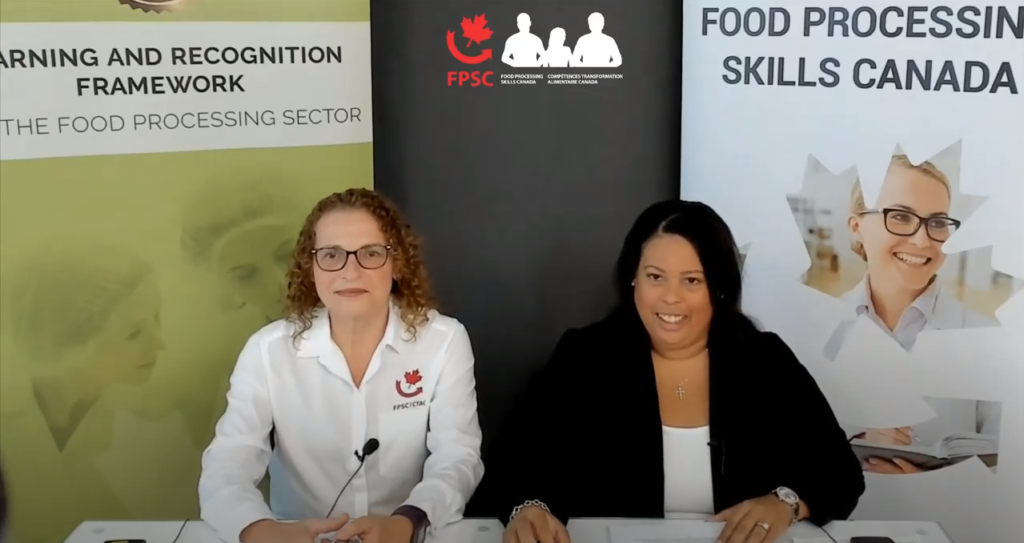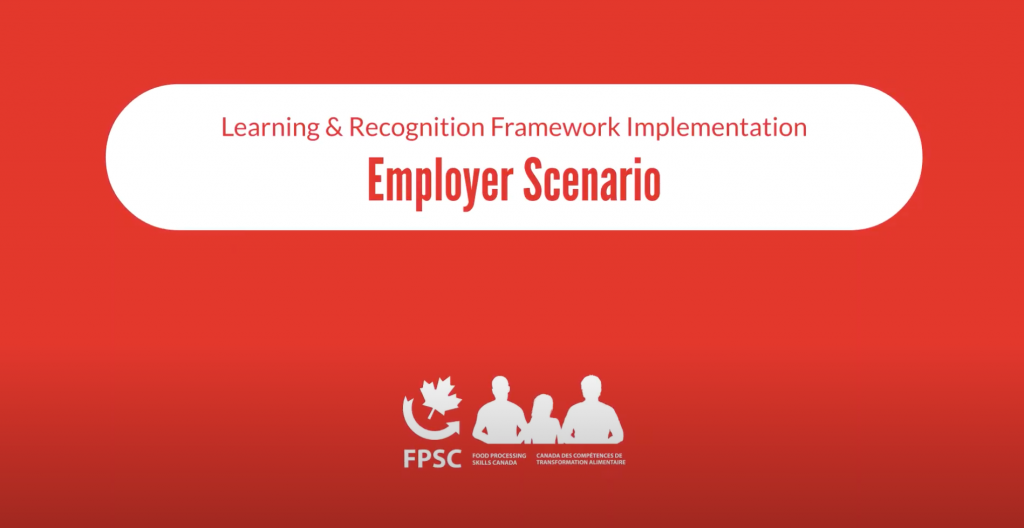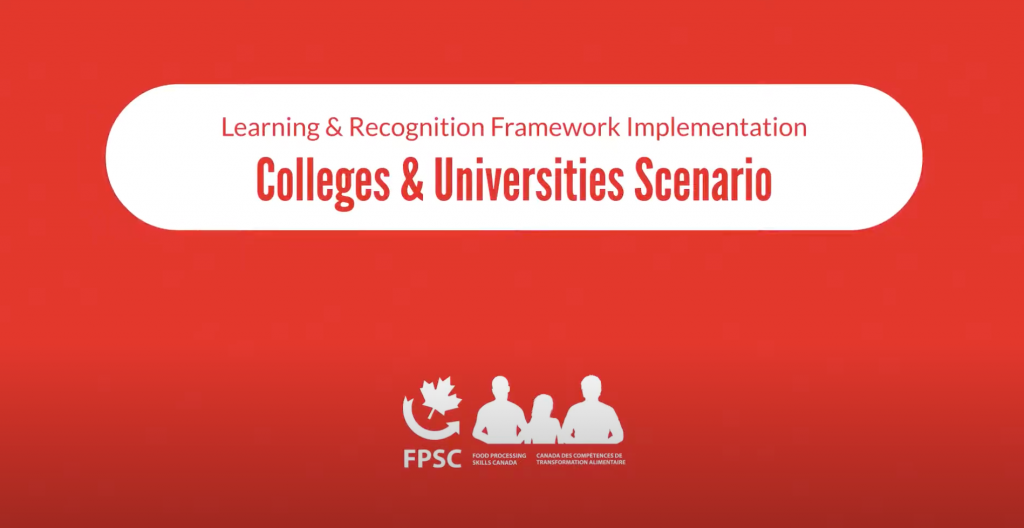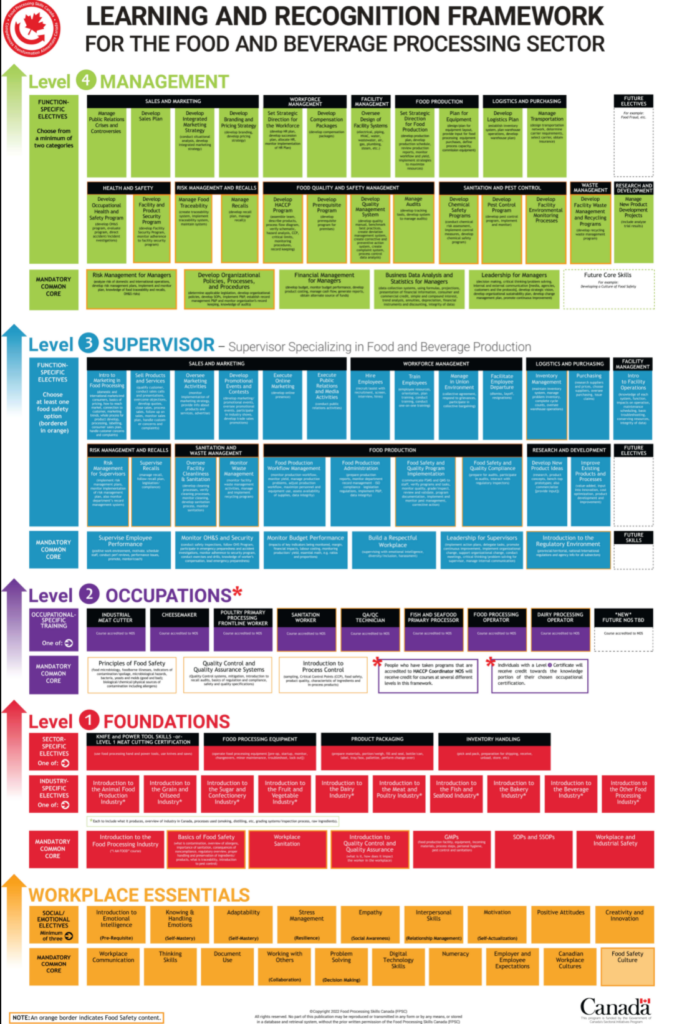Learning & Recognition Framework

Learning & Recognition Framework
Food Processing Skills Canada has led the development of Canada’s first Learning & Recognition Framework (LRF) for the food and beverage manufacturing industry.
The LRF milestone has been groundbreaking for manufacturers and educators. We now have a framework that provides clear learning pathways and skill requirements for jobs. With the LRF it has become a whole lot easier for educators to align training to industry needs and for employers to develop the perfect team.
The LRF provides industry and educators with a documented model that clearly defines qualifications in a comprehensive structure. This framework then provides a path for learning and achievements.
FPSC’s framework was developed through a series of consultations with industry beginning in 2019. Today, the LRF contains five levels wth associated competencies:
- Workplace Essentials
- Level 1: Foundations
- Level 2: Occupations
- Level 3: Supervision
- Level 4: Management
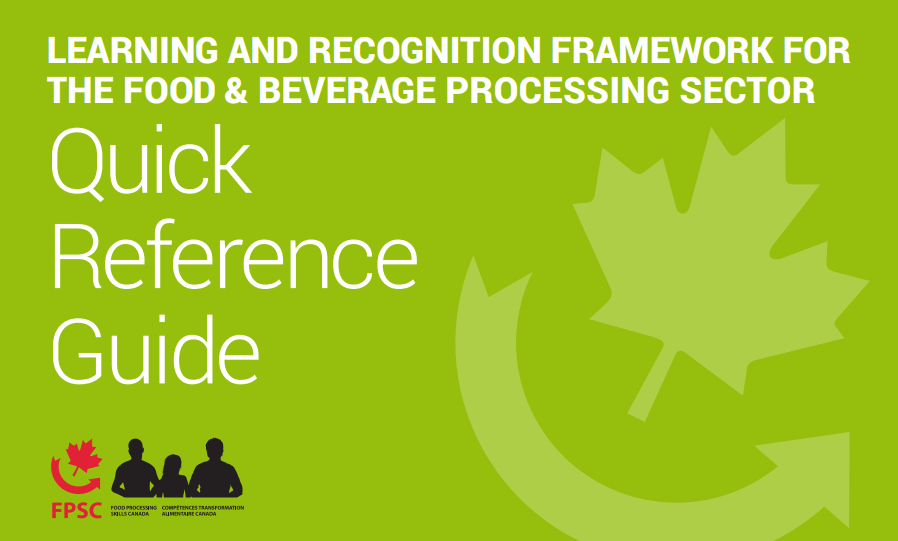
Download the Learning & Recognition Framework Quick Reference Guide to learn more about workplace essentials and Levels 1 to 4 – Foundations, Occupations, Supervisor, Management.
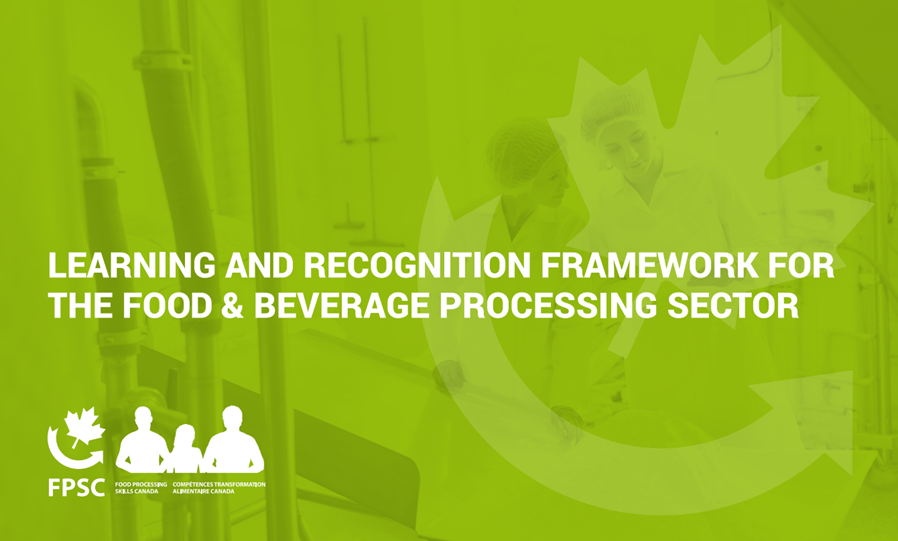
If you would like to read more about the importance and benefits of the Learning & Recognition Framework to workforce development, please download this report.
Benefits of the Learning & Recognition Framework
- Provides a clear, hierarchal path of learning through the sector’s competencies.
- Provides learners with a detailed picture of what competencies are necessary in the sector and what competencies are needed to progress.
- Supports the development of accreditation for training providers – institutions, private trainers, food processing companies – to integrate their training and provide graduates with credit towards achieving a national designation, in addition to their own designations and certifications.
With FPSC accrediation strategy, training providers can submit their courses and programs for assessment against the national competencies for the sector.
Check out FPSC’s interactive tool to better understand the competency requirements for jobs in the industry.
